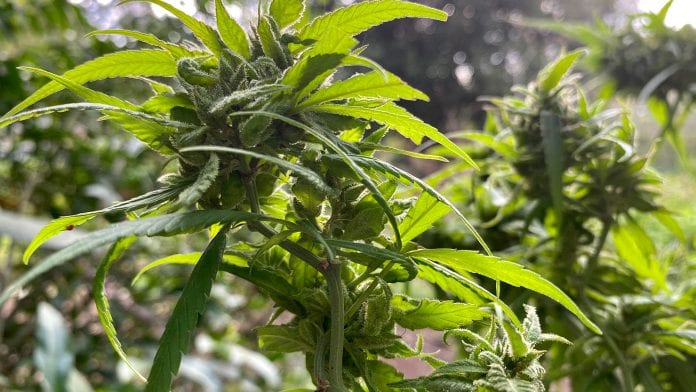
MCN speaks with Medical Cannabis Research Australia Director Sharlene Mavor about the state of cannabis research and treatment in Australia.
Medical Cannabis Research Australia (MCRA) aims to ensure that any Australian who needs medical cannabis is able to access it, by supporting cannabis research, educating prescribers and advocating at a policy level for a consistent, evidence-led approach. MCN speaks with MCRA Director Sharlene Mavor about the state of cannabis research and treatment in Australia.
Where does MCRA fit within the greater Australian cannabis landscape?
We were formed in 2016, very soon after medicinal cannabis was legalised in Australia. Our founders and I realised that we needed a platform from which to educate both doctors and patients about medicinal cannabis; and which could also advocate for easier patient access and try and assist with some of the red tape which still exists to a degree around prescribing for doctors. I am also very passionate about sharing clinical research: I do my best to find it, understand it and break it down in such a way that patients can understand; I also send the relevant research I come across to doctors and use the information to inform the seminars we deliver.
We have spent most of the last five years running seminars in every major city around Australia, partnering with medical professionals from each state in Australia, including analytical chemists; as well as with patients, because it is important and valuable to hear from the patient’s perspective about how their medicinal cannabis use has impacted their life in a positive way. The seminars consist of TED-style talks for about an hour and a half from each presenter, followed by a panel where attendees can ask questions. We have conducted about 80 seminars so far around Australia; since the COVID-19 pandemic began, we have had to adopt a webinar format. I have a chronic pain and medicinal cannabis webinar coming up in two weeks and there are already nearly 1,300 people registered to watch it – there is a huge interest in learning, particularly from patients.
Have you experienced any reluctance or pushback from doctors or clinical staff who may not be comfortable prescribing cannabis?
We are now just over four years post-legalisation, so we are actually starting to get a lot of GPs who are increasingly interested in prescribing medical cannabis. A lot of this has primarily been down to the patients pushing for access and asking their doctors to prescribe: it is probably one of the few times in healthcare that a particular medication has been demanded by the patient to treat their condition.
Not only do individual GPs prescribe medical cannabis, but we also have at least 10 cannabis clinics in operation, most of which have offices in every city in Australia; the staff in these clinics are typically much more experienced as cannabinoid clinicians because they focus solely on cannabis. This allows them to gain a lot of experience with different conditions, different strains and different formulations; and they have templates in place to ensure quick access for patients as well. Slowly, over time, we have seen a growing number of GPs make the conversion to prescribing cannabis. We are up to around 250 authorised prescribers – these particular doctors have special permission to enact continuous prescribing for patients. We’ve had around 80,000 approvals for prescription since legalisation, and the numbers are climbing incrementally, which is wonderful news.

Have research teams been able to access the right kind of cannabis for their studies? Have there been any interesting developments or discoveries in Australian cannabis research?
Australia has a big hotbed of research around cannabis: we have around 80 studies either currently underway or which have recently been completed. Most of the products used in Australian cannabis research are the imported products from Canada, because they are of such high quality; we also have products coming in from Israel and Europe.
Most of the studies which are currently underway are based around pain conditions, because the vast majority of cannabis prescriptions are for chronic pain. We have a number of studies in progress investigating cannabis as a treatment for seizure disorders and a few studies on addiction. We also have a couple of studies underway into cannabis and driving, with healthy participants – this is particularly important, because we need to get the evidence out there to show that it is possible to be using medicinal cannabis and still not be impaired to drive.
Are there still ways in which Australian cannabis law and policy could evolve to meet the needs of patients?
There are still a lot of problems regarding education for doctors is still ongoing: we do need more formal, accredited education for doctors. We are still not really seeing the endocannabinoid system or the application of cannabinoids being taught in medical schools; this is something that needs to change.
We also have problems with costs. At the moment, medical cannabis is available through private prescription, which means the government does not cover any costs for patients. There is a system in Australia called the Pharmaceutical Benefits Scheme, which enables patients to access medications at a very low cost, but unfortunately, there are a number of steps which medicinal cannabis products will need to go through to be made available through that scheme. They will need to go through ‘gold standard’ clinical trials in order to be approved by the Australian Therapeutic Goods Administration (TGA); and from there, they can be considered to be put on the Pharmaceutical Benefits Scheme. Currently, however, we are seeing a huge subset of patients who are just not able to afford the medications, so cannabis does appear at the moment to be a medicine for the wealthier person.
I would really like to see some sort of subsidy scheme put in place by the government to help patients with the costs. There is no reason why this couldn’t happen, whether at a federal level or whether at the state level, because every state on in Australia has its own health department which could, in theory, distribute a subsidy for patients. One very encouraging step is that workers’ compensation insurance schemes and motor vehicle insurance providers are covering medicinal cannabis in some cases; the Department of Veteran Affairs for former members of the military is getting some cannabis-based medicines covered. It is also covered by most private health insurance, but that provision can be capped – and only certain people can afford private health insurance, so that effectively cuts out a lot of people who are closer to the poverty line.
Sharlene Mavor
Director
Medical Cannabis Research Australia
www.mcra.org.au
This article is from issue 16 of Health Europa. Click here to get your free subscription today.








